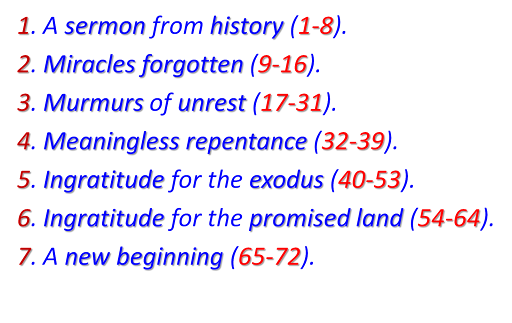Till and Tend. In the beginning, God entrusted humanity with a two-word Prime Directive (Gen 2:15) for life in the Garden: Avad and Shamar.
This ancient wisdom holds the secret to a life of wholeness, where opposites harmonize in a sacred dance. Mastery of this rhythm of resonance requires embracing the interplay between:
- Innovation and Consolidation
- Stability and Motion
- Settling down and Stirring up
- Roots and Wings
- Being and Becoming
- Rest and Renewal
- Vocation and Vacation
- Tradition and Transfiguration
Cloud-Rider, Divine Warrior: The God "who rides on the clouds" (Ps 68:4, 33; 18:9; 104:3-4; Dt 33:26; Isa 19:1; Eze 1:4, 28; Nah 1:3; Mt 24:30; 26:64; Mk 13:26; 14:62; Lk 21:27; Rev 1:7).
Dwelling in God's/Yahweh's house: Ps 23:6; 26:8; 27:4; 36:7-8; 52:8; 65:4; 84:1-4, 10-12; 92:12-14.
How long? The question asked during the lament (Ps 4:2; 6:3; 13:1-2; 35:17; 62:3; 74:10; 79:5; 80:4; 89:46; 90:13; 94:3; 119:84). This indicates that the sufferer has been long in his pain and sees no end in sight. He thus appeals to God's pity that perhaps "enough is enough."
God’s Word says you’re lovable (John 3:16), capable (2 Peter 1:3), valuable (Luke 12:6), forgivable (Psalm 103:12), and usable (Ephesians 4:12). Psychologists say that your self-esteem comes from what you think the most important person in your life thinks about you.
Remember and Obey. Psalm 78:1-72 (2nd longest). Lest We Forget. Lessons from Israel's History. "My people, hear my teaching; listen to the words of my mouth. I will open my mouth with a parable" (Ps 78:1-2a)."We will not hide them from their descendants; we will tell the next generation the praiseworthy deeds of the Lord, his power, and the wonders he has done" Ps 78:4).
Psalm 78, a historical wisdom psalm, recounts the history of Israel from its deliverance from slavery in Egypt to the kingship of David. The negative lesson is that this history not be repeated (Ps 78:8), but that believers learn from it (Ps 78:3-6) and truly trust and obey God (Ps 78:7). Like the parting song of Moses (Dt 32) it is meant to search the conscience and warm the heart, with its great miracles and grace that persists through all the judgments.
- Who was Asaph (1 Ch 25:1; 2 Ch 29:30)?
- Why is it so important to hear and listen even to "parables" [riddles] and "hidden things" (Ps 89:1-2; Mt 13:35)?
- Might the past be like a hidden riddle (Ps 78:3-4)? What should we learn from our ancestors (Dt 32:7; Rom 15:4; Rev 18:4)?
- Why teach the next generation (Ps 78:5-7; Dt 6:6-9; 2 Tim 2:2)?
- What should you never become (Ps 78:8; Isa 29:13; Jer 4:4)?
- Why was well-equipped and skilled Ephraim [Israel] defeated (Ps 78:9-11)? What shold you never forget (2 Pet 1:9; Rom 2:4)?
- What did God do for the Israelites when they were enslaved in Egypt and wandering in the wilderness (Ps 78:12-16; Exo 20:2)? [Zoan (Exo 78:12, 43) is a city in the north-east of the Nile delta.]
- How did they respond (Ps 78:17-20)? Is this a proper response?
- Is God's response to them appropriate (Ps 78:21-22, 23-25, 26-28)?
- How did they respond to God's gracious provision (Ps 78:29; Num 11:18-20)? What did God do (Ps 78:31, 33; Num 11:33)?
- Did they truly repent (Ps 78:32, 34-35; Hos 5:15-6:3)?
- What was the problem with what they said (Ps 78:36-37; Jas 1:19, 22; 2:14)?
- How did God respond (Ps 78:38-39; Hos 6:4; 11:8)?
- What was the crux of their rebellion and testing God (Ps 78:40-41, 42-43)?
- What did God do to deliver them from slavery in Egypt (Ps 78:44-51, 52-53)?
- Did they forget that the wrath restrained for them (Ps 78:38) was let loose on their oppressors (Ps 78:49)? That they were shepherded (Ps 78:52-53) while others perished (Ps 78:50-51)?
- Despite God delivering them from slavery and providing them as inheritance (Ps 78:54-55), what did they do (Ps 78:56)?
- Did they learn from their ancestors (Ps 78:57, 3-6)? What did they become (Ps 78:58)?
- When did God abandon "the tabernacle of Shiloh" (Ps 78:59-64; 1 Sam 4:2-4, 10-11; Eze 11:23)? Why (Jer 7:11-15)?
- When Eli and his 2 sons died (Ps 78:64), what did Phineha's widow name her son (1 Sam 4:19-22)? Why is there no greater tragedy than this?
- When God awoke what did he do (Ps 78:65-66; 1 Sam 5:1-4, 6-7)?
- In the sovereignty of God who did God reject and choose instead (Ps 78:67-68, 9)? Why (2 Tim 1:9)? What is their [our] only hope and why (Ps 78:69-72; Rev 21:22, 27; Jn 2:19-21; 6:41; 7:37-39; 11:25-26)?
The God who rides on the clouds (Dt 33:26; Ps 18:9; 104:3-4; Isa 19:1; Nah 1:3) is a Warror for the vulnerable--orphans, widows, the lonely and prisoners (Exo 22:22-24; Ps 146:6-9).


No comments:
Post a Comment